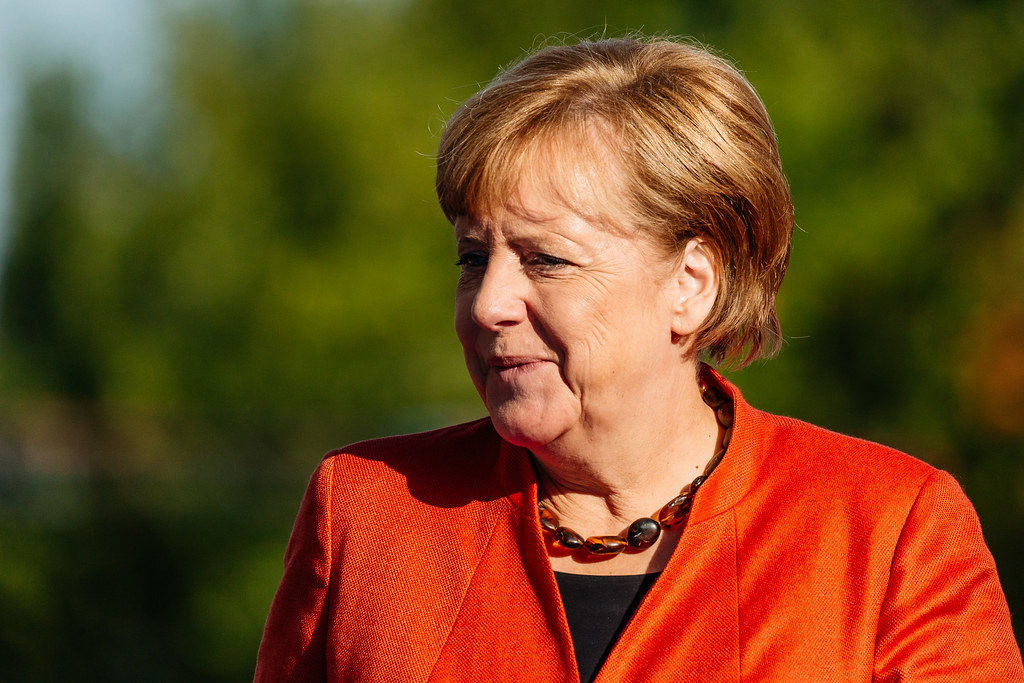German magazine Spiegel was the first to report Olaf Scholz’s intention to become a candidate for the post of chairman of the Social Democratic Party of Germany. “Thus, the race for leadrership in the new party was launched,” the newspaper writes, reporting that this issue was raised during a telephone conversation between Mr. Scholz and the trio of politicians who are temporarily heading the CDU. “I'm not so presumptuous as to think that I am the only true candidate. But now the situation has changed,” Mr. Scholz explained his decision in an interview with the Sunday edition of Bild am Sonntag. Over the past week, the vice chancellor was holding informal consultations with party members.
Along with him, another dozen people are applying for the post of chairman, including the former deputy foreign minister of Germany Michael Rot, former presidential candidate Gesine Schwan, and party vice-chairman Ralf Stegner. The list of candidates will have been finalized until September 1, and 430 thousand party members will hold the election of a new leader in October. This procedure of internal party voting cannot be called routine. A vacant seat at the head of the CDU was created after the German Social Democrats gained just 15.8% in the European Parliament elections in May (having lost more than ten points) and suffered a historic defeat in Bremen on the same day, losing their majority in the parliament of the tenth largest city in the country for the first time in 70 years. After that, Head of the party, Andrea Nahles, first announced early election of the leader in the Bundestag (she combined both positions), and then decided to resign.
Since the beginning of last year, the CDU lost 37 thousand out of 463 thousand members. And even the election of a new chairman will hit the party: absentee ballot will cost € 1.7 million.
Traditionally, the CDU and Christian Democrats (CDU/CSU union) in Germany are called "people's parties". The political system of Germany has been sitting on this dichotomy for many decades. “The CDU is no longer a popular party as it was a long time ago,” said Gero Neugebauer, a leading expert on German political parties and professor of the Free University of Berlin in an interview with Deutsche Welle. “There is no coverage that would indicate that the party is represented in all relevant social groups.”
This problem is characteristic of the Social Democrats throughout Europe. Popularity of the Panhellenic Socialist Movement (PASOK) in two decades collapsed from 44% to 8%. Even rebranding did not help. Italian Democratic Party sunk from 43% to 18.7%, and French Socialist Party - from 57% to 21%. In the May elections to the European Parliament, French socialists gained only 6.2%.
source: spiegel.de, dw.de
Along with him, another dozen people are applying for the post of chairman, including the former deputy foreign minister of Germany Michael Rot, former presidential candidate Gesine Schwan, and party vice-chairman Ralf Stegner. The list of candidates will have been finalized until September 1, and 430 thousand party members will hold the election of a new leader in October. This procedure of internal party voting cannot be called routine. A vacant seat at the head of the CDU was created after the German Social Democrats gained just 15.8% in the European Parliament elections in May (having lost more than ten points) and suffered a historic defeat in Bremen on the same day, losing their majority in the parliament of the tenth largest city in the country for the first time in 70 years. After that, Head of the party, Andrea Nahles, first announced early election of the leader in the Bundestag (she combined both positions), and then decided to resign.
Since the beginning of last year, the CDU lost 37 thousand out of 463 thousand members. And even the election of a new chairman will hit the party: absentee ballot will cost € 1.7 million.
Traditionally, the CDU and Christian Democrats (CDU/CSU union) in Germany are called "people's parties". The political system of Germany has been sitting on this dichotomy for many decades. “The CDU is no longer a popular party as it was a long time ago,” said Gero Neugebauer, a leading expert on German political parties and professor of the Free University of Berlin in an interview with Deutsche Welle. “There is no coverage that would indicate that the party is represented in all relevant social groups.”
This problem is characteristic of the Social Democrats throughout Europe. Popularity of the Panhellenic Socialist Movement (PASOK) in two decades collapsed from 44% to 8%. Even rebranding did not help. Italian Democratic Party sunk from 43% to 18.7%, and French Socialist Party - from 57% to 21%. In the May elections to the European Parliament, French socialists gained only 6.2%.
source: spiegel.de, dw.de





